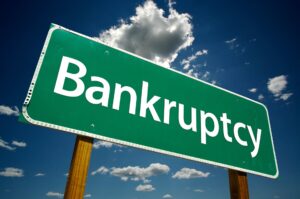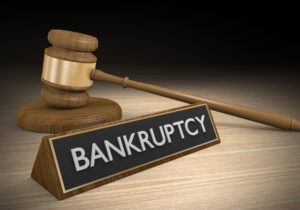Financial stress can affect every aspect of your life. It can be hard to make plans for the future when you are struggling with large debts that you cannot seem to control. It’s natural to feel overwhelmed and alone in your situation. According to recent estimates, the average U.S. household with debt owes $155,622, or more than $15 trillion collectively. Like you, many Americans are struggling with debt from credit cards, mortgages, auto loans, student loans, and other costly obligations. As you explore your bankruptcy options in Central New York and the North Country, you may find that Chapter 7 bankruptcy relief offers you the best chance at a fresh financial start. However, it’s important to understand how this process works and what criteria you need to meet, or you risk having your bankruptcy request denied. Below are just a few of the many reasons why you wouldn’t be eligible to file a Chapter 7 bankruptcy.
How Chapter 7 Bankruptcy Works in New York
In most cases, those who qualify for Chapter 7 bankruptcy relief are able to protect and keep all their property (house, car, bank accounts, etc.). Ultimately, they end up receiving a discharge of most unsecured debts, eliminating their legal obligation to repay creditors and providing them with a fresh start. Once you file a Chapter 7 bankruptcy, the Bankruptcy Court will issue an automatic stay preventing creditors and debt collectors from contacting you for payments. However, there are several criteria you must meet in order to obtain Chapter 7 bankruptcy relief; failing to meet these requirements can lead the court to deny your request.
Reasons the Court May Deny a Chapter 7 Bankruptcy
Like most legal processes, bankruptcy requires an individual to meet basic criteria in order to qualify for Chapter 7 bankruptcy relief. It’s essential to review and understand the qualifications you’ll need to meet before proceeding with your bankruptcy request. Enlisting the support of a compassionate and experienced Central New York bankruptcy attorney is a great way to ensure you qualify for this request. Let’s take a look at some of the most common reasons why the court may deny a Chapter 7 bankruptcy filing.
You Can Still Make Monthly Payments
To qualify for Chapter 7 bankruptcy relief, you need to show that you are unable to repay the debts you owe. You will have to pass what’s known as a “means test” to demonstrate that you do not have enough income or funds to repay your debt. The means test takes your last 6 months of gross income and multiplies by 2. That projected yearly income is then compared to the average income in NYS for your household size. Even if you “pass” the means test your real budget could still show that you have money left over each month to repay a percent of your debt in a Chapter 13 bankruptcy.
You Previously Filed for Bankruptcy
While bankruptcy is designed to give people the opportunity to reset their financial situations, there are limitations on how often you can receive a discharge (debts are wiped away). Under current law, you must wait eight years after you previously filed a Chapter 7 petition until you can file another Chapter 7 bankruptcy. If you previously filed a Chapter 13 bankruptcy petition, you must wait six years before filing a new Chapter 7 bankruptcy petition.
Your Petition Contained Errors or Was Fraudulent in Some Way
It’s essential that you approach the Chapter 7 bankruptcy filing process with honesty and transparency. You can significantly damage your bankruptcy petition by omitting assets, failing to disclose the total amount of income or savings you have, or attempting to hide that you recently purchased luxury items. Of course, other fraudulent activities, like destroying or falsifying documents, can lead to a denial and other potentially harsh penalties.
You Made Hasty Asset Transfers
As the bankruptcy court considers your Chapter 7 petition, it will look back at your transactional history to determine whether you tried to dump some of your assets in order to qualify for relief. Potential issues include transferring property (house, car, etc.) without selling it for fair market value, or transferring/gifting money to another person. In such cases, the court will usually interpret these actions as fraudulent and object to your bankruptcy filing.
You Failed to Complete the Court-Ordered Education Requirement
Before the court decides to grant your Chapter 7 bankruptcy request and issue a discharge, it requires that you complete two online classes: a certified credit counseling class and a debtor financial education course. The credit counseling class must be completed before the bankruptcy is filed. Failure to complete this class can result in your bankruptcy filing being rejected. After the bankruptcy is filed you are required to complete a debtor financial education class. Failure to complete this class will result in your bankruptcy being closed without a discharge. This means that your debt will not be wiped away and your creditors can continue to come after you. It’s essential to review and understand all of the steps you need to take to obtain a Chapter 7 discharge.
Compassionate Legal Guidance When You Need it Most
Struggling with debt can be overwhelming, and you may feel as if you will never get on top of your financial situation. However, there are options that can help you take proactive steps to regain control of your finances so you can start feeling hopeful about the future once more. Reaching out to an experienced and compassionate Central New York and North Country bankruptcy attorney is a great first step to helping you understand your options. Together, you and your attorney can determine the most appropriate course of action that allows you to enjoy a brighter and more stable future.




